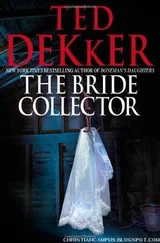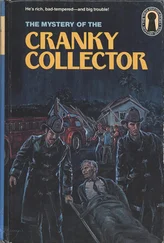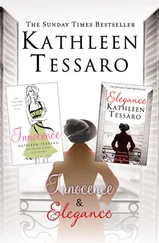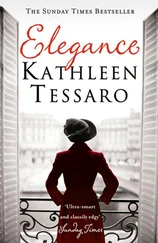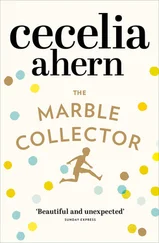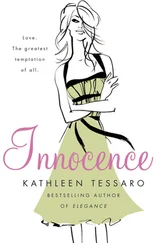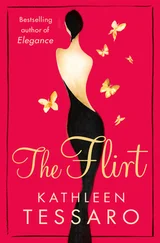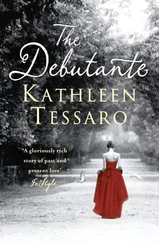Madame Zed gave a little shrug. ‘I’ve enjoyed some success in my time.’
‘Do you still make perfume?’
‘No. Not in many years. A lifetime ago.’ She settled into a chair across from her. ‘But now, tell me how you came here?’
‘Well, actually, there’s very little to tell. I live in London. I’m married. I lead a perfectly average life,’ she admitted. ‘Then one day, I received a letter from Madame d’Orsey’s lawyer, Monsieur Tissot, informing me that I was the sole beneficiary of her will. I was certain there had been a mistake. But Monsieur Tissot insisted. So I arrived in Paris a few days ago to see for myself.’ She put her glass down. ‘As bizarre as it sounds, apparently I’ve received an inheritance from a woman I know nothing about. The entire situation is absurd!’
Madame raised a hand to stop her. ‘I’m sorry, but what precisely is your inheritance, if you don’t mind me asking?’
‘According to the will, my inheritance is to be the proceeds of the sale of an apartment, in the Place des Vosges. Do you know it?’
‘Oh.’ Madame Zed frowned; shifted. ‘I see. Nothing else?’
‘Well, there are some stocks.’ Grace sat forward. ‘The lawyer – I’m sure he thinks that I should just take the money and leave. But I can’t. I’m looking for someone who knew Eva d’Orsey, for some clue to my connection to her.’
Grace waited, hoping that Madame Zed would willingly fill in the gaps, but instead she took a sip of her cognac, her features unreadable. She seemed hesitant, even reluctant to offer any information.
Still, Grace remembered the way the old woman had reacted when she’d heard of Eva’s death. She tried again. ‘You knew her, didn’t you?’
‘Yes. Yes, I knew her.’ However, instead of explaining, Madame fell silent, drifting into her own thoughts.
‘What was she like?’ Grace prompted.
‘Eva?’ Madame’s black eyes held the distance, as if she were looking inward, into her own memory. ‘Eva was the most genuinely original, singularly elegant woman I think I have ever known. She was also very troubled. Desperate even. I knew her a long time. The truth was we both had certain expectations of each other. In the end, I suppose they were too high.’
‘What kind of expectations? What do you mean, desperate?’
Madame looked across at Grace. ‘It’s a complicated history, Mrs Munroe. I’m not entirely certain even I understand it.’
Her evasiveness was frustrating.
‘I just want to know something about her.’ Grace felt as though she was begging; perhaps she was. ‘I know nothing!’
Madame considered a moment. ‘What if knowing more meant that your life would change?’
‘How?’
But Madame Zed didn’t elaborate. Instead she stared at Grace, as if trying to measure her resolve.
‘Hasn’t my life already changed?’ Grace pointed out. ‘The only difference is, right now I don’t understand why.’
‘Very well,’ Madame agreed finally.
Then, to Grace’s surprise, the old woman got up and left the room.
When she returned, she was holding three very different bottles of perfume, which she put down on the table between them. Two were in fine hand-blown glass flacons with crystal stoppers. The first was elegant, a slim, simple rectangular shape; the second was a multifaceted crystal creation that threw rainbows of light around the room. Each had a gold-embossed printed labels. One read La Première and the other said Auréole Noire .
The last one was nothing more than a plain, generic chemist’s vial, sealed with a cork stopper. A yellowed, peeling label read Choses Perdus.
Grace looked up. ‘What’s this?’
Madame sat down again in the chair opposite. ‘Once upon a time, I was a perfumer, Mrs Munroe. Now I’m reduced to a custodian, a collector of the past. I can’t write or paint or compose… my language is scent – the vocabulary of feeling and memory. So forgive me if the story I’m about to tell is illustrated in a slightly unconventional way.’ She gestured, indicating the perfumes. ‘Here is a history. A love letter, in fact.’
Grace stared at the three bottles again. ‘In perfume?’
She nodded. ‘Only these perfumes weren’t created by me. They were the work of my only apprentice, Andre Valmont, an extraordinarily talented young man.’
‘The shop below was his, wasn’t it?’
‘That’s right. His, mine… and to a certain extent, Eva’s. You see, Eva d’Orsey was his muse, his greatest source of inspiration. She gave him vision. And he gave her clarity, focus.’
Grace sat forward, eager to hear more. ‘A muse? So, was she beautiful?’
‘Not when I first met her. Then she was just a girl – awkward, unformed.’
‘Really?’
Madame smiled indulgently. ‘Most people assume that a muse is a creature of perfect beauty, poise and grace. Like the creatures from Greek mythology. They’re wrong. In fact, there should be a marked absence of perfection in a muse – a gaping hole between what she is and what she might be. The ideal muse is a woman whose rough edges and contradictions drive you to fill in the blanks of her character. She is the irritant to your creativity. A remarkable possibility, waiting to be formed.’
Madame picked up the bottle marked La Première . Very gently she eased the stopper off and held her nose above the bottle. Eyes closed, she inhaled.
She passed the bottle to Grace.
Gingerly, Grace smelled it too.
It was a heady, overwhelming veil of scent. At first it developed almost hypnotically into a floral, fruit bouquet; languid and sensual with a musky, almost dusty depth. But then a sharpness emerged, beautiful, icy, unexpected. There was something almost overwhelming about the lush complexity of the formulation, the sheer unbridled eroticism which came across in wave after wave of contrasting notes.
‘This is floral, earthy, and there’s the clean overlay of aldehydic waxiness and soft flowers,’ Madame explained. ‘And then, underneath, a whiff of more feral, impolite essences. Under the clean, innocent exterior there’s a carnal presence. It’s not without ulterior motive.’
Grace stared hopelessly. Here was a language she definitely didn’t understand. ‘I’m sorry?’
Madame Zed looked across at her. ‘This, Mrs Munroe, is the scent of intoxication and desire. The perfume of seduction.’
It was nearing the end of August when Eva saw Miss Waverley again. She was strolling down the hallway on the arm of a dark-haired man with a very thin moustache as Eva was coming out of the linen closet on the third floor.
‘Oh, hello!’ Miss Waverley smiled gaily, as if Eva were an old friend.
‘You’re back!’ Eva beamed in turn, ridiculously thrilled at the sight of her.
Miss Waverley laughed and pulled the long chinchilla wrap she was wearing up on her shoulders. ‘I told you I would be.’
The gentleman tipped his hat at her.
Miss Waverley squeezed his arm. ‘This is Mr Wiener. And this, my dear,’ she said, turning to him, ‘is the little maid I told you about.’
Miss Waverley had been talking about her; had remembered her. Eva’s whole chest swelled with pride.
‘Charmed,’ he nodded. He had a German accent and intent, almost entirely black eyes.
‘So, you’re still here,’ Miss Waverley said.
‘Yes.’
Mr Wiener lit a cigarette. ‘Does it suit you?’
‘Pardon me, sir?’
‘This type of work?’
They were both looking at her very seriously, waiting for a response.
‘It suits me very well, sir.’
‘You have no ambition?’
‘I don’t know what you mean, sir.’
Читать дальше
Конец ознакомительного отрывка
Купить книгу



